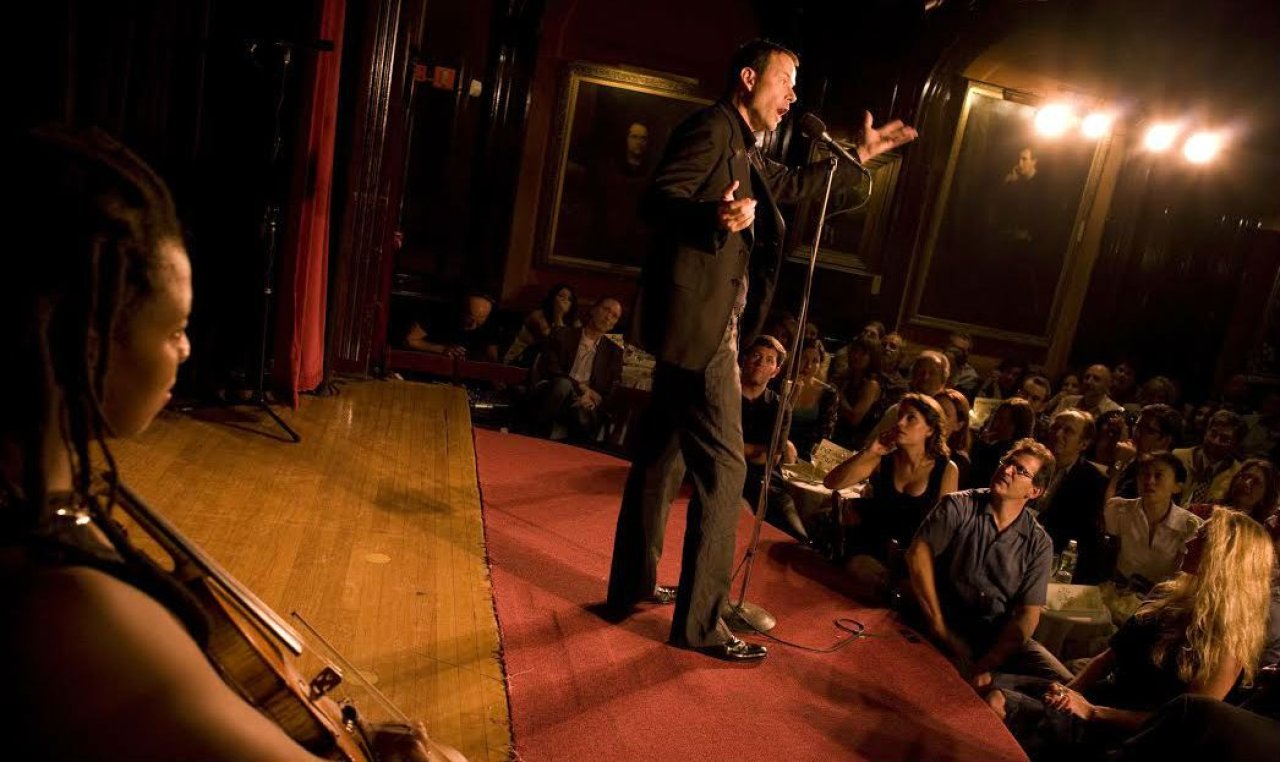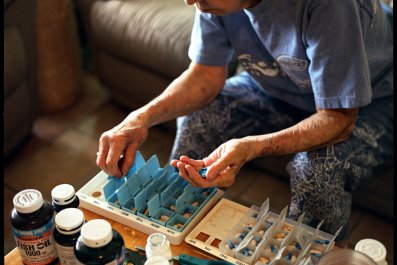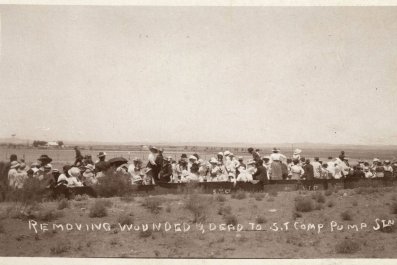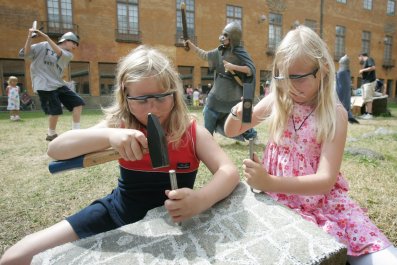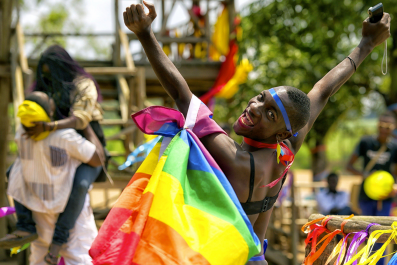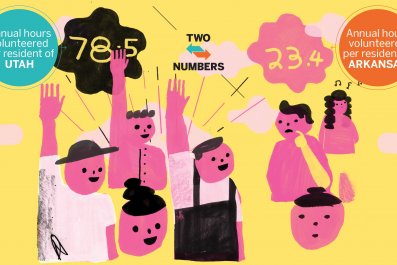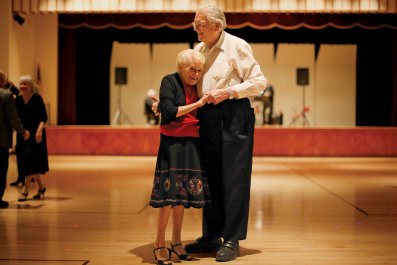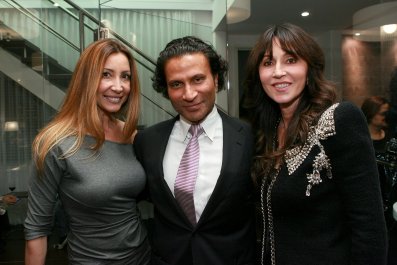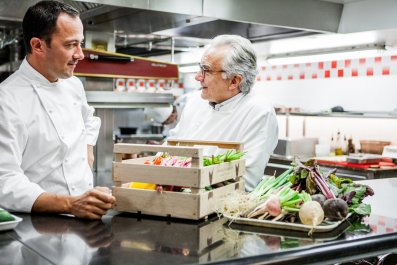"Our mission is to connect people through stories." So says Catherine Burns, the ebullient director of the non-profit storytelling group The Moth as she waits for their first English story slam to begin in a cellar bar in East London's Shoreditch. Since it started life, in novelist George Dawes Green's New York living room, The Moth has become an American institution, spawning a series of live shows across the US, a weekly radio show on NPR and a hugely successful podcast with enthusiastic adherents all over the world.
Before their Moth Mainstage show in Islington a few nights earlier, Burns had been worried about how an English audience would take to an evening of personal storytelling. "We all love England," she says, "but we were nervous." Then as soon as the host, Neil Gaiman, walked onto the Union Chapel stage in front of 900 people, with others queuing outside, it was clear that "true stories told live" (that's the subtitle of The Moth shows) has global resonance. As founder George Green told me, "You Brits are just as confessional as us. Cultural differences are often exaggerated."
It used to be said that stand-up comedy was the new rock 'n' roll. Now it seems that storytelling is the new stand-up with groups springing up all over the world. This resurgence has prompted dedicated storytelling events and festivals all over the UK. In London, 5x15 Stories and Spark hold regular sold-out sessions. Fireside Festival in Baldock, Hertfordshire, celebrates the lost art of spinning a yarn over two weeks in November, The Scottish International Storytelling Festival (24th October – 2nd November), will this year follow the theme 'Once Upon a Place', and the Society for Storytelling has nearly 50 affiliated groups throughout the UK.
Green's original idea with The Moth was to recreate the campfire evenings he remembered from his youth in Georgia. Folks would sit and tell stories as the fire crackled and the moths hovered above. Years later, in New York, now a successful novelist, Green would invite a few literary and artistic friends, to recreate the experience. They took to calling themselves "the moths" and the idea was born. The rules – displayed on a blackboard in Shoreditch for all would-be raconteurs – are simple. Your story must be true, it must stick to the chosen theme of the evening and you must speak without notes for the allotted duration, in this case five minutes.
What makes a good story? Catherine Burns' advice is to "ask yourself what are the stakes? How did this event change me? And show some vulnerability. The more you share, the more the audience will care". George Green agrees that stories about failure are often the most powerful. "You're really speaking to yourself. The trick is find who you were at the time of the story, try to recall those small details that bring the story to life."
At the Main Stage show the storytellers were practiced speakers. Comedian Omid Djalili told a hilarious tale about his experiences as a bit part actor in Russell Crowe's Gladiator, writer Andrew Solomon spoke about his time in Moscow during the anti-Gorbachev putsch and the Scottish dramatist Lynn Ferguson recalled her pregnancy, a story that managed to be both harrowing and hilarious. But the standout performance, precisely because it wasn't a performance, came from 88-year-old Noreen Riols, with her extraordinary tale of working with wartime agents and spies in Churchill's Special Operations Executive.
Emphasising the continuity between the Main Stage event and the Story Slam, Lynn Ferguson hosted the second evening, putting the storytellers at ease with great élan. First up, on the theme of "firsts", was Glynis, who told us about the lions of Longleat trashing her uncle's car while her six-year-old self sat captivated inside. Bill, an American, had a humorous story about a medical emergency on his first day at work in a New York office.
Australian Daniel recounted his adventures on a trip to Italy. Bisi, a Nigerian living in London, told of his first visit to a gay night club. Another American, Tim, gave us a cautionary tale about locking his keys inside his car in a very rough area of East St Louis. Charlie, our first Englishman, described his first day in London, which included a chance encounter with actress Su Pollard, and Rachel Ogilvy ended the evening with a moving tale about her cancer diagnosis and recovery. It was all very, well, civilised – none of the aggression you might expect at a comedy club, none of the braggadocio of stand-up. The supportive crowd was willing the storytellers to do well and thrilled when they did.
Milling around afterwards, the audience – more women than men, I noted – were keen to engage with the storytellers and swap their own tales. Some had seen posters for the event. Others, like 30-something south-Londoners Sarah and Mark Moulding, had been attracted by Catherine Burns's new book, The Moth: 50 True Stories, which contains transcripts of some of the most successful stories from her collection of more than 3,000. But most of the people I spoke to had picked up the Moth habit through the podcast.
The best of the Shoreditch slam will make for a great radio show. And perhaps what makes The Moth so perfect for radio is that it isn't created with radio in mind. The stories aren't produced, edited, trimmed or shaped. "All the pauses, the mistakes, the stuttering," says George Green, "they add up to your picture of who a character is." Authenticity is their key ingredient and that always works better than artifice in an intimate environment like radio.
Green agrees. "It's perfect for radio whether you're doing the dishes or driving your car." But his next sentence is a surprise. "It's a beautiful experience, but it's one I never do. I don't have a radio." Understanding their limitations, The Moth team hand over their recordings to an experienced American radio man, Jay Allison who sprinkles some audio fairy dust over them, writes some intros and outros and creates both the weekly Moth Radio Hour and the podcast.
The Moth is part of a radio renaissance in America. For a new generation of online audio consumers, the touch points are This American Life, Radiolab and The Moth, all successful programmes broadcast on National Public Radio stations in the US and, crucially, available worldwide as downloadable podcasts.
So why won't the BBC take the show? "We've had extensive conversations with them, we would love to be on the BBC, we all listen to the BBC, that's what a certain sort of person in America does," says Catherine Burns.



